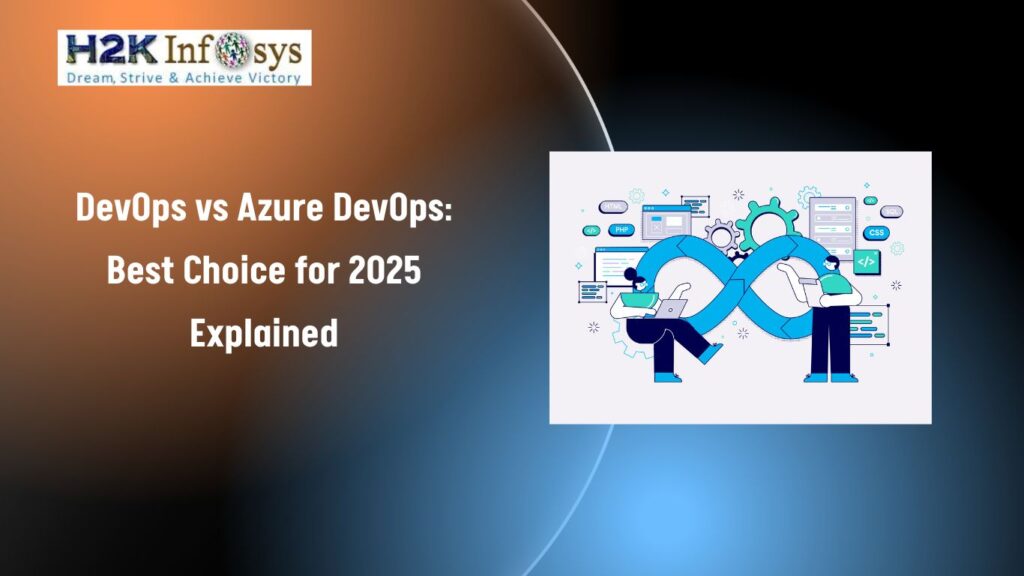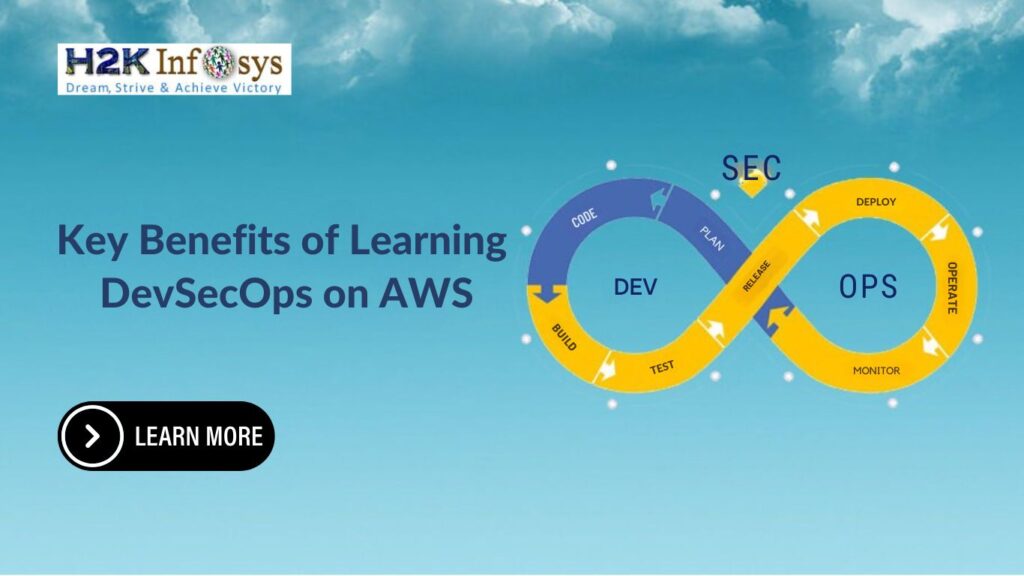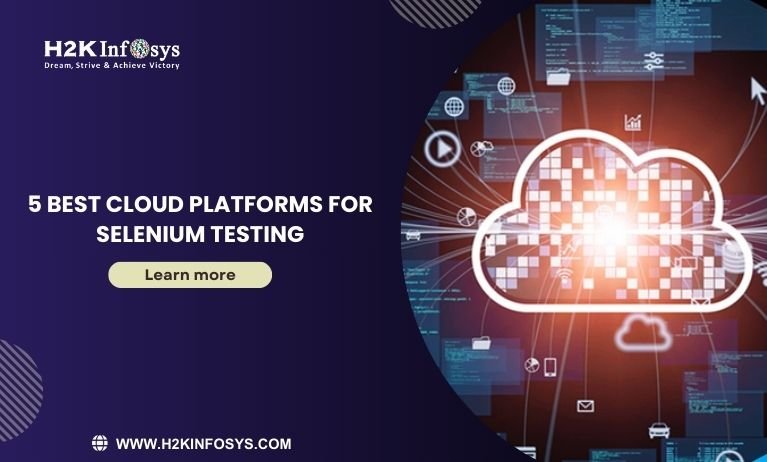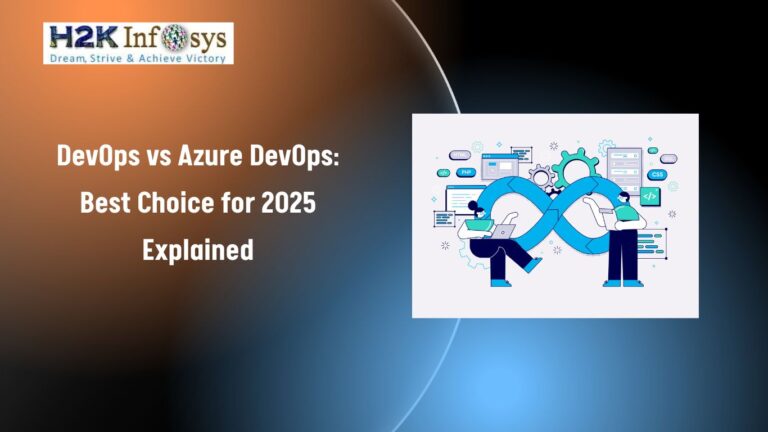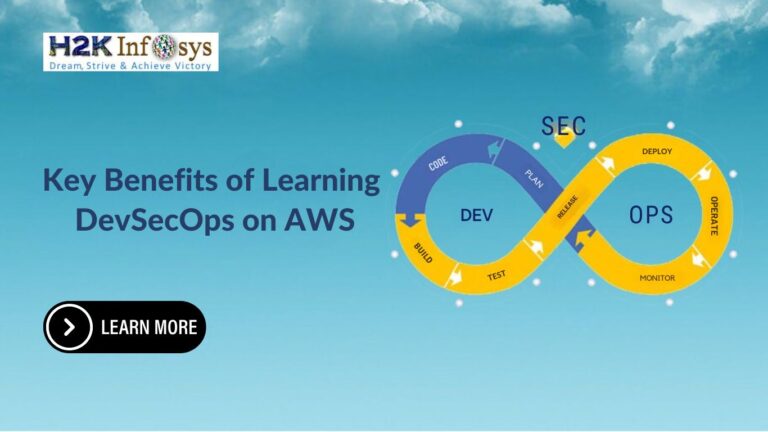Introduction
The demand for efficient software development and deployment has given rise to DevOps, a transformative approach that integrates development and operations. But what truly powers DevOps? What is DevOps: Understanding the Role of Cloud in DevOps plays a fundamental role in enabling automation, scalability, and collaboration within DevOps practices.
In this blog, we’ll explore the core principles of DevOps, the critical role of Cloud in DevOps, and why enrolling in a DevOps training online course can be the key to mastering this field.
What is DevOps?
DevOps is a combination of Development (Dev) and Operations (Ops) — a cultural and professional movement that aims to bridge the gap between software development teams and IT operations. It promotes collaboration, communication, integration, and automation to improve the speed, quality, and reliability of software delivery.
Rather than being a tool or a single process, DevOps is a mindset and set of practices that bring together people, processes, and technology to continuously deliver value to customers. With the support of Cloud in DevOps, this process becomes even more powerful and agile.
Goals of DevOps
- Faster software releases
- Higher quality code
- Reduced deployment failures
- Rapid recovery from incidents
- Increased collaboration between teams
- Improved customer satisfaction
Core Principles of DevOps
- Collaboration
DevOps encourages breaking silos between development, QA, and operations teams. - Automation
Automating repetitive tasks like code integration, testing, deployment, and infrastructure provisioning. - Continuous Integration & Continuous Delivery (CI/CD)
Frequent integration and delivery of code changes using automation tools and pipelines. - Monitoring & Feedback
Constant monitoring of systems and applications to provide real-time feedback and improve future releases. - Infrastructure as Code (IaC)
Manage infrastructure using automation scripts — a key component of Cloud in DevOps.
DevOps Lifecycle Phases
The DevOps lifecycle includes the following stages:
- Plan – Define the project, scope, and create backlogs.
- Develop – Write and manage code using version control tools like Git.
- Build – Compile code and manage dependencies using tools like Maven, Gradle, etc.
- Test – Run automated tests to ensure the code is bug-free.
- Release – Prepare and manage releases using tools like Jenkins, GitHub Actions.
- Deploy – Deploy via Cloud in DevOps platforms
- Operate – Maintain the application and infrastructure, ensuring uptime.
- Monitor – Continuously monitor performance, errors, and usage.
Popular DevOps Tools
| Category | Tools |
|---|---|
| Version Control | Git, GitHub, GitLab |
| CI/CD | Jenkins, CircleCI, Travis CI, GitLab CI |
| Configuration Management | Ansible, Chef, Puppet |
| Containerization | Docker |
| Orchestration | Kubernetes |
| Monitoring | Prometheus, Grafana, Nagios |
| Cloud Platforms | AWS, Azure, Google Cloud |
Benefits of DevOps
- Faster Time to Market
Roll out updates quickly with Cloud in DevOps support - Increased Efficiency
Automation reduces manual work and errors. - Improved Collaboration
DevOps fosters a culture of shared responsibility. - Higher Customer Satisfaction
With faster updates and fewer bugs, users enjoy a smoother experience. - Scalability and Flexibility
Scale easily using Cloud in DevOps platforms
DevOps vs Traditional IT
| Feature | Traditional IT | DevOps |
|---|---|---|
| Development & Operations | Separate | Integrated |
| Deployment Frequency | Monthly or quarterly | Daily or multiple times a day |
| Automation | Low | High |
| Feedback Loop | Delayed | Real-time |
| Collaboration | Limited | Strong |
Future of DevOps
With increasing demand for cloud-native apps, AI-driven automation, and microservices, DevOps continues to evolve. Some emerging trends include:
- DevSecOps (integrating security into DevOps)
- GitOps (managing infrastructure via Git)
- AI/ML in DevOps (predictive analytics, auto-remediation)
- Serverless & Edge Computing
The Role of Cloud Computing in DevOps
Cloud in DevOps computing has revolutionized the way DevOps operates. Let’s explore why the cloud is essential in DevOps implementations:
1. Scalability and Flexibility
Cloud platforms allow businesses to scale infrastructure based on demand. This eliminates the need for physical hardware and enables DevOps teams to adapt quickly.
Example: Companies like Netflix use cloud-based DevOps to handle fluctuating user traffic efficiently.
2. Automation with Infrastructure as Code (IaC)
DevOps relies on Infrastructure as Code (IaC) to automate provisioning and management of infrastructure. Cloud in DevOps offers tools to define infrastructure in code, ensuring consistency and eliminating manual configurations.
Example: Using tools like Terraform or AWS CloudFormation, teams can deploy infrastructure in minutes rather than days.
3. Continuous Integration & Deployment (CI/CD) in the Cloud
Cloud-based CI/CD pipelines help developers push code changes frequently and reliably.
Example: A retail company implementing CI/CD in the cloud can roll out software updates in real-time without downtime.
4. Cost Optimization
Cloud computing follows a pay-as-you-go model, allowing businesses to optimize costs based on actual usage.
5. Enhanced Security and Compliance
Cloud in DevOps providers offer built-in security tools, compliance frameworks, and monitoring features that strengthen DevOps security practices.
Implementing Cloud in DevOps: Step-by-Step Guide
Step 1: Choose a Cloud Provider
Select a cloud provider based on business needs. Common choices include AWS, Google Cloud, and Microsoft Azure.
Step 2: Set Up Version Control
Use Git-based repositories to manage source code and track changes.
Step 3: Automate Builds and Tests
Implement CI/CD pipelines to automate testing and deployment.
Step 4: Define Infrastructure as Code (IaC)
Write infrastructure configurations using IaC tools to ensure consistency.
Step 5: Implement Monitoring & Security
Use cloud-based monitoring tools to track application performance and ensure security best practices.
Why Enroll in a DevOps Training Course?
Mastering Cloud in DevOps requires hands-on training and expert guidance. A Cloud in DevOps online training course can help you:
1. Growing Demand for DevOps Professionals
The adoption of DevOps is growing rapidly across industries such as finance, healthcare, e-commerce, telecom, and tech startups. According to industry reports, organizations using DevOps practices deploy code 30 times more frequently with 50% fewer failures. This efficiency makes DevOps professionals vital assets to any IT team.
By enrolling in a DevOps training course, you position yourself as a qualified candidate for roles like:
- DevOps Engineer
- Site Reliability Engineer (SRE)
- Automation Engineer
- Cloud Engineer
- Release Manager
- Infrastructure as Code (IaC) Specialist
2. Gain Hands-On Experience with Tools
A professional DevOps course provides you with hands-on experience in industry-standard tools, such as:
- Version Control: Git, GitHub
- CI/CD Tools: Jenkins, GitLab CI, CircleCI
- Configuration Management: Ansible, Chef, Puppet
- Containerization: Docker, Podman
- Orchestration: Kubernetes
- Monitoring & Logging: Prometheus, Grafana, ELK Stack
- Cloud Services: AWS, Azure, Google Cloud Platform (GCP)
Learning these tools in a structured course ensures you’re job-ready and can contribute immediately in a real-world DevOps environment.
3. The Cloud is at the Core of DevOps
One of the most compelling reasons to enroll in a DevOps course today is the integration of cloud computing with DevOps practices. Cloud platforms like AWS, Azure, and GCP offer scalable infrastructure and native DevOps services that make automation, CI/CD, and monitoring more efficient.
Why Cloud is Essential in DevOps:
- Scalability: Easily scale up or down your environment based on demand.
- Automation: Use Infrastructure as Code (IaC) with tools like Terraform or AWS CloudFormation.
- Speed: Quickly deploy and test applications in cloud environments.
- Reliability: High availability and disaster recovery are built into many cloud services.
- Cost-Effectiveness: Pay only for the resources you use.
A modern DevOps training program will teach you how to leverage the cloud for:
- Continuous Integration and Delivery
- Automated provisioning and deployments
- Real-time monitoring and feedback
- Enhanced collaboration between teams
4. Better Career Opportunities and High Salary
DevOps professionals are among the highest-paid IT roles globally. With companies shifting to agile methodologies and cloud-native technologies, skilled DevOps engineers are hard to find—and highly valued.
Salary Highlights:
- In the US, DevOps Engineers earn between $100,000 to $160,000 per year.
- In India, average salaries range from ₹6 LPA to ₹25+ LPA, depending on experience and skills.
By completing a certified DevOps course, you not only gain technical skills but also make your profile more appealing to top employers.
5. Learn Best Practices and Real-World Scenarios
DevOps is more than just tools—it’s a mindset and a set of best practices. A quality training course helps you:
- Understand Agile and Lean principles
- Apply CI/CD pipelines in real-time projects
- Implement microservices and containerized applications
- Improve communication and collaboration across teams
Learning from real-world examples, case studies, and capstone projects gives you the practical insight to apply DevOps effectively in any organization.
6. Certification Increases Credibility
Completing a DevOps course from a reputed platform like H2K Infosys often includes certification that adds value to your resume. Certifications show employers that you’ve completed formal training, understand the DevOps lifecycle, and can implement its practices in cloud and on-premise environments.
Popular DevOps-related certifications include:
- Certified Kubernetes Administrator (CKA)
- AWS Certified DevOps Engineer – Professional
- Microsoft Certified: DevOps Engineer Expert
- Docker Certified Associate
- Google Professional DevOps Engineer
7. Flexibility of Online Learning
Many training providers, including H2K Infosys, offer instructor-led online DevOps training with flexible schedules. Whether you’re a working professional, student, or career switcher, you can:
- Learn at your own pace
- Get access to live sessions and recorded videos
- Interact with expert mentors
- Join a community of learners and DevOps practitioners
- Receive job assistance and resume preparation support
8. Stay Relevant in a Rapidly Evolving Tech World
DevOps is not just a trend—it’s a long-term transformation that’s redefining the way software is built, tested, deployed, and monitored. By learning DevOps, especially with a focus on cloud-native practices, you future-proof your career and stay ahead of the competition.
Key Takeaways
- DevOps integrates development and operations to enhance software delivery.
- Cloud in DevOps provides scalability, speed, and reliability.
- Infrastructure as Code (IaC) and CI/CD pipelines streamline DevOps workflows.
- Enrolling in DevOps training and certification can accelerate your career growth.
Conclusion
The synergy between DevOps and cloud computing is undeniable. Cloud in DevOps empowers teams to build, deploy, and monitor applications with speed and reliability. By leveraging cloud-based tools and best practices, businesses can achieve faster deployments, improved security, and cost efficiency. If you’re ready to build a career in DevOps, enroll in the best Cloud in DevOps training online at H2K Infosys and gain hands-on experience today!

















